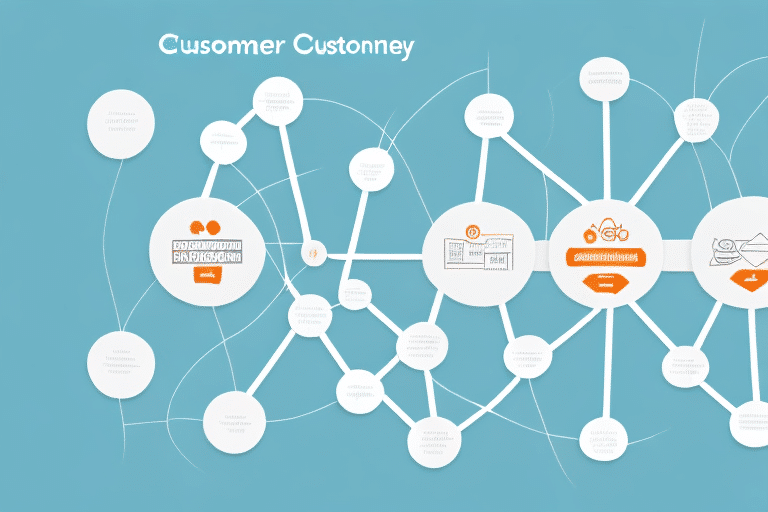Maximizing Profits and Customer Loyalty with an Effective CX Strategy
In today's competitive business landscape, customer experience (CX) has emerged as a critical factor in maximizing profits and fostering customer loyalty. A well-crafted CX strategy not only enhances the overall customer journey but also builds trust, reliability, and a strong brand attachment. These elements collectively lead to higher customer satisfaction, increased repeat business, and ultimately, greater profitability.
Enhancing Your CX Strategy: Tips and Best Practices
Developing an effective CX strategy might seem challenging, but by concentrating on key areas, you can significantly elevate your customers' experience. Here are some essential tips and best practices:
- Employee Training: Ensure your employees are well-trained and equipped to handle customer interactions with professionalism and empathy.
- Customer Feedback: Collect and analyze customer feedback to identify pain points and areas for improvement.
- Personalization: Tailor your products and services to meet individual customer needs through personalization and customization.
- Omnichannel Experience: Provide a seamless customer experience across all channels, from physical stores to online platforms and beyond.
The Importance of CX in Today's Business Landscape
The significance of customer experience has never been more pronounced. According to a Salesforce report, 84% of customers prioritize the experience a company provides as much as its products and services. In a crowded marketplace, a superior CX can be a key differentiator, helping your business stand out from the competition and retain customers in the long term.
Furthermore, a positive customer experience leads to increased loyalty and advocacy. Satisfied customers are more inclined to recommend your brand to others, resulting in new business and enhanced revenue. Conversely, negative customer experiences can lead to lost business and a tarnished reputation. Therefore, investing in your CX strategy is crucial not only for the immediate success of your business but also for its sustainable growth over time.
Building Trust and Reliability Through CX
Trust and reliability are fundamental to any successful business relationship. An effective CX strategy plays a pivotal role in establishing and maintaining these qualities. By delivering exceptional customer service, promptly addressing customer inquiries and complaints, and maintaining transparency in your business practices, you can build trust with your customers and cultivate a reputation for reliability that encourages repeat business and referrals.
How Excellent CX Fosters a Loyal Customer Base
One of the primary advantages of a superior customer experience is the loyalty it nurtures. When customers feel valued and heard, they are more likely to remain loyal and become repeat buyers. This not only boosts profitability and reduces customer acquisition costs but also generates positive word-of-mouth, attracting new customers organically.
Additionally, a positive CX can enhance customer satisfaction and brand loyalty. Customers who have favorable interactions with your business are more likely to advocate for your brand, recommending your products or services to their network. This creates a robust, loyal customer base invested in your business, supporting its growth even during challenging times.
Creating Strong Brand Attachment Through CX
A significant yet often overlooked benefit of an excellent customer experience is the emotional connection it can establish between your customers and your brand. By delivering personalized and memorable experiences that align with your brand's values and messaging, you can foster a deep sense of attachment and loyalty that goes beyond traditional business-customer relationships. This emotional bond leads to a devoted customer base that actively promotes your business to others.
The Role of Emotional Connection in CX
Emotional connection is a crucial component of the customer experience. Businesses that successfully create strong emotional bonds with their customers enjoy numerous benefits, including higher customer satisfaction, increased repeat business, and positive word-of-mouth referrals. To establish an emotional connection, focus on:
- Personalization: Customize interactions and offerings to meet individual customer preferences.
- Empathy: Show genuine understanding and concern for your customers' needs and experiences.
- Consistent Communication: Maintain consistent messaging and tone across all customer touchpoints.
Consistent brand messaging and tone reinforce trust and reliability, ensuring customers know what to expect from your brand. This consistency spans all interactions, from your website and social media presence to customer service engagements.
Moreover, building an emotional connection requires ongoing effort and investment. Continually seek to understand your customers' evolving needs and preferences, and adapt your CX strategy to meet them. By delivering a consistently personalized and empathetic experience, you can establish a lasting bond that keeps customers returning to your brand.
The Cost of Poor CX: Why Customers Leave
While exceptional CX can yield significant benefits, poor CX can have detrimental effects on your business. Customers who experience negative interactions are more likely to switch to competitors, spread negative feedback, and damage your business's reputation. This can lead to lost revenue, increased customer acquisition costs, and even impact employee morale and retention.
Understanding the Impact of Bad CX on Your Business
Poor customer experience can adversely affect every aspect of your business, from customer loyalty and retention to employee satisfaction and long-term profitability. By addressing and improving the customer experience, businesses can mitigate the negative effects of bad CX and foster a customer-centric culture that drives growth and success.
A key factor contributing to poor CX is inadequate communication between the business and its customers. When customers feel their needs and concerns are not acknowledged or addressed, their experience turns negative. Therefore, it's essential for businesses to actively solicit customer feedback and leverage it to enhance products and services. By listening to customers and implementing changes based on their feedback, businesses can create a more positive and satisfying customer experience.
Shifting to a Customer Success Mindset
To truly maximize profits and build customer loyalty, businesses must transition from a transactional approach to a customer success mindset. This involves prioritizing the customer experience, nurturing long-term relationships, and utilizing data and analytics to continuously refine and optimize the customer journey.
How to Prioritize Customer Success in Your Business Model
Prioritizing customer success requires a company-wide dedication to customer satisfaction, starting from the leadership team down to front-line employees. Strategies include:
- Developing a Customer-Centric Culture: Foster an organizational culture that places customer satisfaction at its core.
- Gathering and Analyzing Customer Feedback: Regularly collect and assess feedback to inform product development and service enhancements.
- Investing in Employee Training: Equip employees with the skills and knowledge necessary to deliver outstanding customer service.
The Benefits of Focusing on Customer Success
Emphasizing customer success creates a virtuous cycle of loyalty and profitability. Customers who feel valued and supported are more likely to remain loyal, endorse your business to others, and increase their spending over time. This results in lower customer acquisition costs, higher customer lifetime value, and a more stable and predictable revenue stream.
In summary, developing an effective CX strategy is essential for businesses aiming to maximize profits and foster customer loyalty in today's competitive market. By emphasizing customer success, building trust and reliability, and establishing emotional connections with customers, businesses can cultivate a cycle of loyalty and profitability that ensures long-term success.
To prioritize customer success, consider offering personalized experiences by leveraging customer data to tailor products and services to individual preferences. For instance, a clothing retailer can utilize data on a customer's past purchases and browsing history to recommend items that align with their interests. This approach not only enhances the customer experience but also increases the likelihood of repeat purchases and loyalty.
Additionally, proactively addressing customer issues and concerns is crucial. Implement a robust customer support system with multiple channels for customer interaction, and ensure timely and effective resolution of complaints and feedback. Using this feedback to refine products and services further strengthens the customer relationship.




















